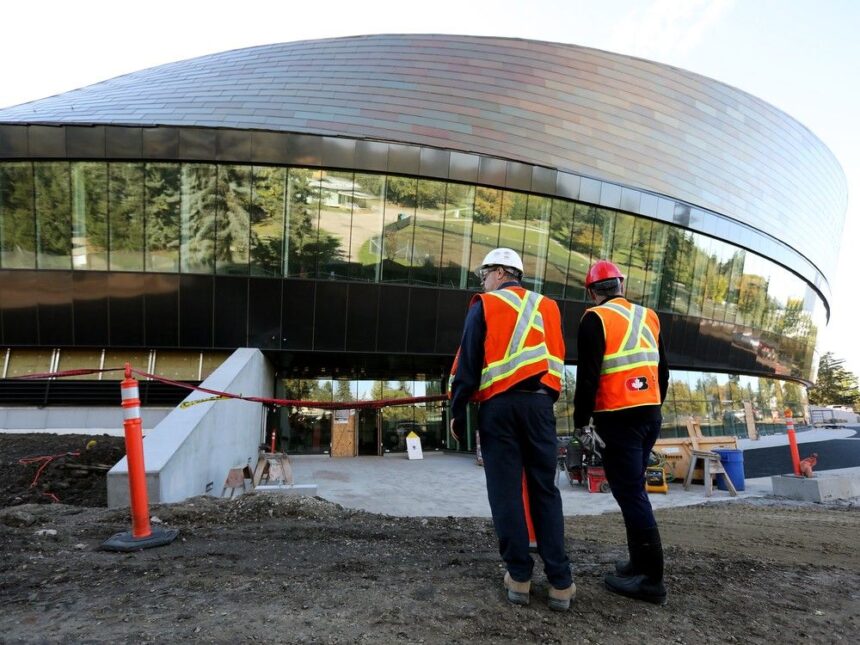The whispers around city hall these days are all about dollar signs and letterheads. Earlier this week, our council members voted unanimously to explore selling naming rights for city-owned facilities – a move that could potentially bring millions into our municipal coffers.
As I sat in the council chambers Tuesday afternoon, the energy shifted noticeably when Councillor Tim Cartmell raised his motion. He’s asking administration to develop a comprehensive strategy for managing naming rights, sponsorships, and advertising on city properties.
“This isn’t about slapping corporate logos on everything,” Cartmell told me after the meeting, adjusting his glasses thoughtfully. “It’s about finding appropriate, respectful ways to generate non-tax revenue while maintaining the character of our public spaces.”
The potential financial impact isn’t small change. Looking at comparable cities, Calgary generated over $4.5 million last year through similar corporate partnerships. Currently, Edmonton has only a handful of named facilities, including Rogers Place and the Terwillegar Community Recreation Centre, sponsored by Servus Credit Union.
Walking through Churchill Square yesterday afternoon, I asked several Edmontonians for their thoughts. Opinion was decidedly mixed.
“I worry about commercialization of everything public,” said Maria Gonzalez, 62, bundled against the October chill. “Some spaces should just belong to everyone without a corporate stamp.”
But Jason Kim, a small business owner I spoke with near City Hall, sees potential benefits. “If it keeps my property taxes from going up while maintaining services, I’m all for creative solutions,” he said, balancing his coffee while checking his watch.
The report will explore different approaches to naming – from entire facilities to specific spaces within them. Councillor Andrew Knack pointed out during deliberations that thoughtful implementation will be crucial.
“The Commonwealth Community Recreation Centre has a running track named after Jamie Sale and David Pelletier,” Knack noted. “There are ways to honor community contributors alongside potential corporate partners.”
City administration must now develop comprehensive guidelines addressing everything from criteria for potential partners to pricing structures. They’ll also need to navigate ethical considerations, like avoiding partnerships with companies whose values might conflict with the city’s.
This exploration comes as Edmonton, like many municipalities, faces challenging financial pressures. With infrastructure needs growing and resistance to tax increases, alternative revenue sources have become increasingly attractive.
Mayor Amarjeet Sohi expressed measured support. “We need to balance revenue opportunities with maintaining the public character of our facilities,” he told reporters. “I’m looking forward to seeing what options administration brings back.”
The historical significance of some facility names adds complexity to the conversation. Commonwealth Stadium, named to commemorate the 1978 Commonwealth Games, carries historical weight for many long-time residents.
Administration’s report is expected back by early 2024, giving councillors and residents several months to consider the implications of this potential shift in how we name and fund our public spaces.
As someone who’s covered Edmonton’s community evolution for over a decade, I’ve seen how spaces define our shared identity. The names we give them matter – they tell our collective story. Finding the balance between fiscal pragmatism and preserving that community narrative will be the challenge ahead.
Whatever path council ultimately chooses, this conversation is certain to continue around dinner tables and coffee shops across our city in the months ahead.







